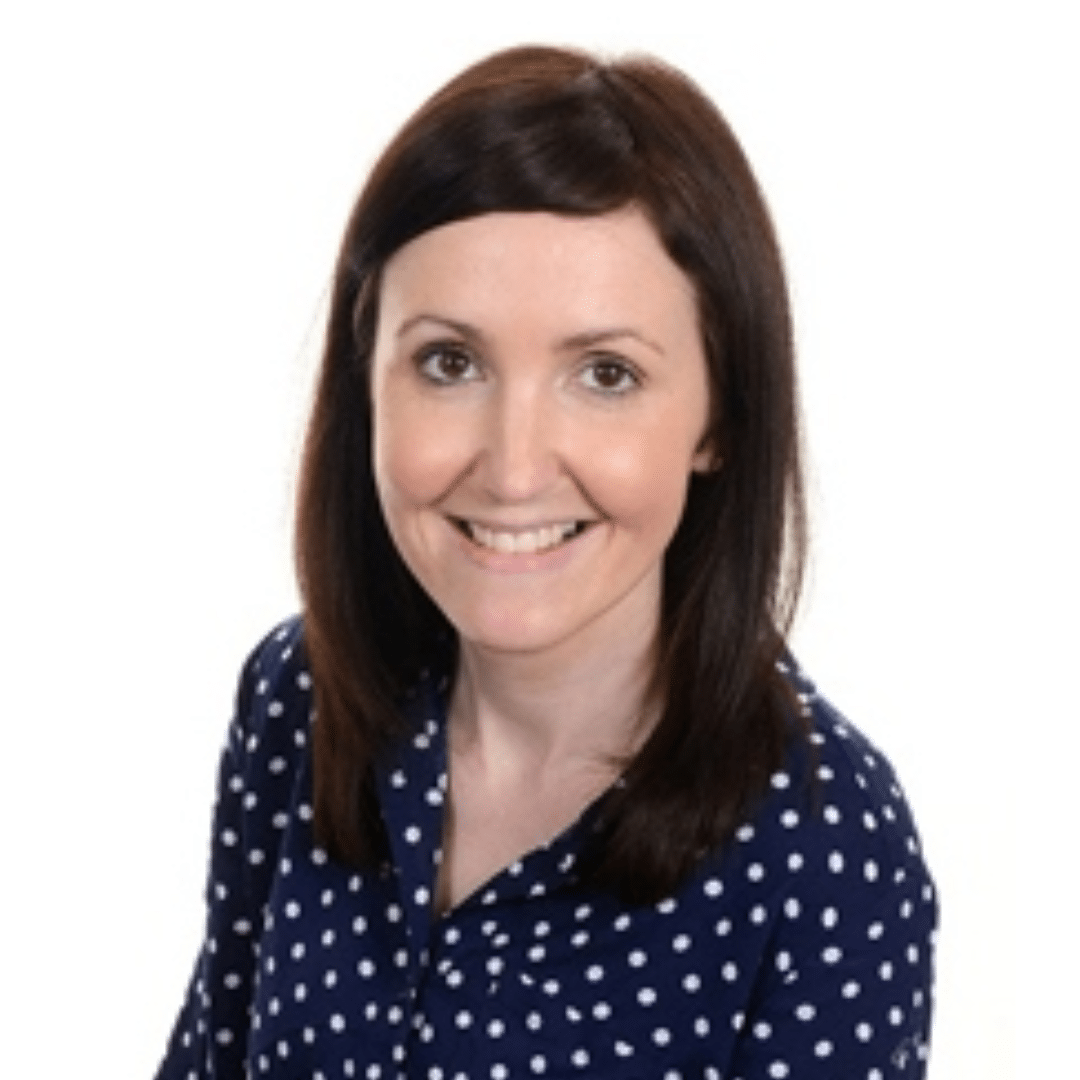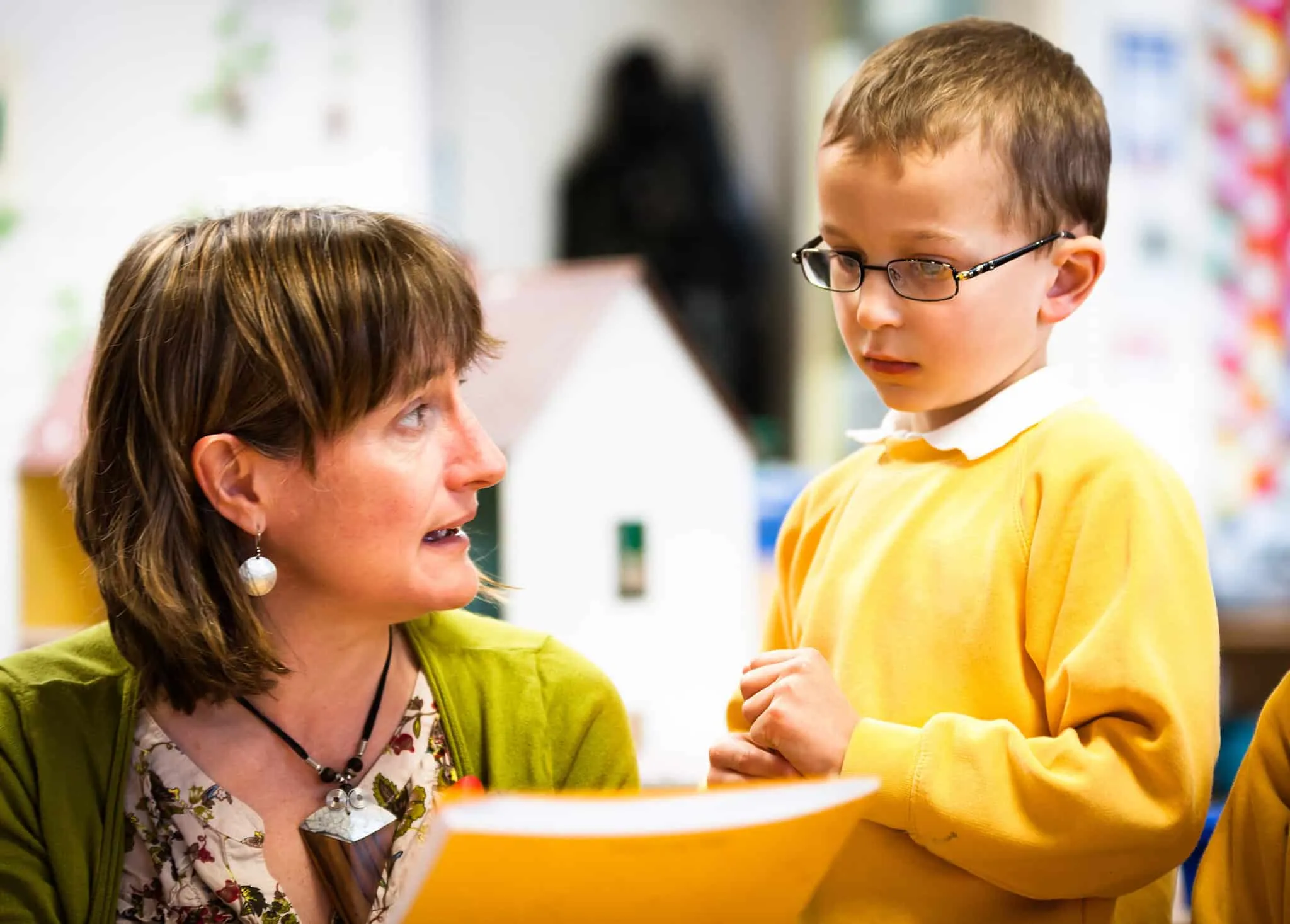
When it comes to barriers to learning maths, Catherine Magee is in no doubt about one of the main obstacles: “It’s a mindset – even very young children will say, ‘I’m rubbish at maths. My daddy’s rubbish at maths, my mummy was rubbish at maths, and so was my granny, and that’s why I’m rubbish at maths. It’s unbelievable that even the youngest children will say this.”
Catherine, now a vice-principal but formerly a primary Year 6 teacher and school improvement leader who taught at St Comgall’s in County Antrim for 18 years, says the text-heavy nature of some maths can also leave children struggling with literacy. “As soon as you start piling words and layers of sentences on top, these children immediately disengage. Plus, the way maths is taught can be overly complicated.”
Diverse school
St. Comgall’s is a large primary school with 600 pupils in a diverse neighbourhood. “It’s near one of the main hospitals in Northern Ireland, and the school mirrors its diversity. We have a real demographic mix – many families are from overseas; some are very affluent, and others struggle to make ends meet. It’s a rich mix of children and abilities.”
After the pandemic, the school started using Freckle, Renaissance’s adaptive practice maths platform, not least because Catherine had noticed that children’s maths outcomes hadn’t bounced back the way reading had. “It wasn’t surprising that children’s reading skills survived better than their maths skills. We live in a literacy-centric world with lots of potential for incidental learning. We also had Accelerated Reader, which allowed the children to read and do their quizzes at home.
“Maths is different because maths needs to be taught, so there’s less potential for incidental learning. We wanted an equivalent to Accelerated Reader to help support them – which is when we discovered Freckle.”
Invisible differentiation
Children are assessed using Star Maths, which fast-tracks them to an individual starting step for each of the maths domains. This enables Freckle to pitch content at the appropriate level for each individual child and adapt depending on their answers. Catherine says the platform is incredibly user-friendly and not difficult to learn, but its biggest advantage is what she calls ‘invisible differentiation’.
“You set tasks for children in your class, but when the children go to do those tasks, even if they’re sitting right beside somebody else, to the naked eye, they all look the same. In reality, they are heavily differentiated, which is brilliant because children don’t have a big neon arrow on top of their heads saying, ‘I’m different’ or ‘I’m not as good’. They feel equivalent to their peers, which is exactly what I want my children to feel. I want them to feel equivalent to their peers.”
“I had a child in my class who couldn’t spell her surname. On Freckle, she worked at a level equivalent to Primary 2 standard (age 5-6) in Primary 6 (age 9-10). The person next to her was working at a Primary 7 standard, yet neither knew. This invisible differentiation is a big, big plus.”
Catherine does think that girls and boys tend to approach maths differently. “Girls get a bit obsessed with how a piece of work has to look and what they think a teacher wants them to put down on paper, whereas boys are less inclined to think like that. Their books can look scruffy, but their understanding can be a bit more concrete.”
Focus skills
An important component of invisible differentiation is Freckle’s emphasis on focus skills, the building blocks of student learning. “Think of focus skills as the cement and learning as the bricks,” explains Catherine. “Focus skills help to plug the gaps, they help to consolidate learning before you put further bricks on top, they help to create steady foundations.”
She says Freckle has focus skills tied on the pupil dashboard that pupils can click on: “Their focus skills tasks are auto-generated from information taken from their Star Maths assessment and from their performance on Freckle. Children can work on these skills and acquire mastery and fluency that will positively impact future learning. And because the activities are also auto-generated, teacher workload and time are reduced.”
Inquiry-based learning
As Freckle is adaptive, the platform caters to various abilities and automatically adjusts content depending on the pupil’s answers. And because it tracks progress over time, Catherine says teachers use it for reports and personal learning plans. “We also use it for homework, and every month, we have a Freckle assembly, where children who get 100% in a maths task can enter for a prize. They’re very inclusive because, regardless of what level a child is working at, they can still get 100%.”
Her colleagues, she says, have found Freckle extremely easy to use, not least because they were used to Accelerated Reader, and so they found the reports very familiar. Catherine says the inquiry-based learning or problem-solving function was a big hit. “All children find problem-solving difficult, but Freckle has loads of imaginative examples, like presidential candidates, archaeology or the ocean bed, with cartoons or animation that tell the children what they are about to explore. Moreover, the activities can be done by the whole class, in small groups, by pairs or by pupils on their own. Whatever the teacher thinks best.”
How does Catherine think schools can get the most out of Freckle?
- Bring the parents with you. “Parental buy-in is essential. We have a breakfast meeting for parents in the first term, during which we explain what Freckle is and how we use it. They’re very keen to support their children once they understand the basic concept and what we’re trying to do.”
- Use the reports to focus on areas for improvement. “From the reports, identify a child’s two weakest areas and share the information with parents, so they can help them practise on Freckle at home.”
- Don’t succumb to data overload. “Freckle is incredibly good at generating reports on all kinds of areas, but you wouldn’t do anything else in your day if you acted on all of them! So take colleagues through the most useful ones and concentrate on them.”
Catherine Magee was a Year 6 teacher and school improvement leader at St. Comgall’s for 18 years and a past Teacher of the Year award winner. She is now vice-principal of St Bernard’s Primary School, Belfast.
